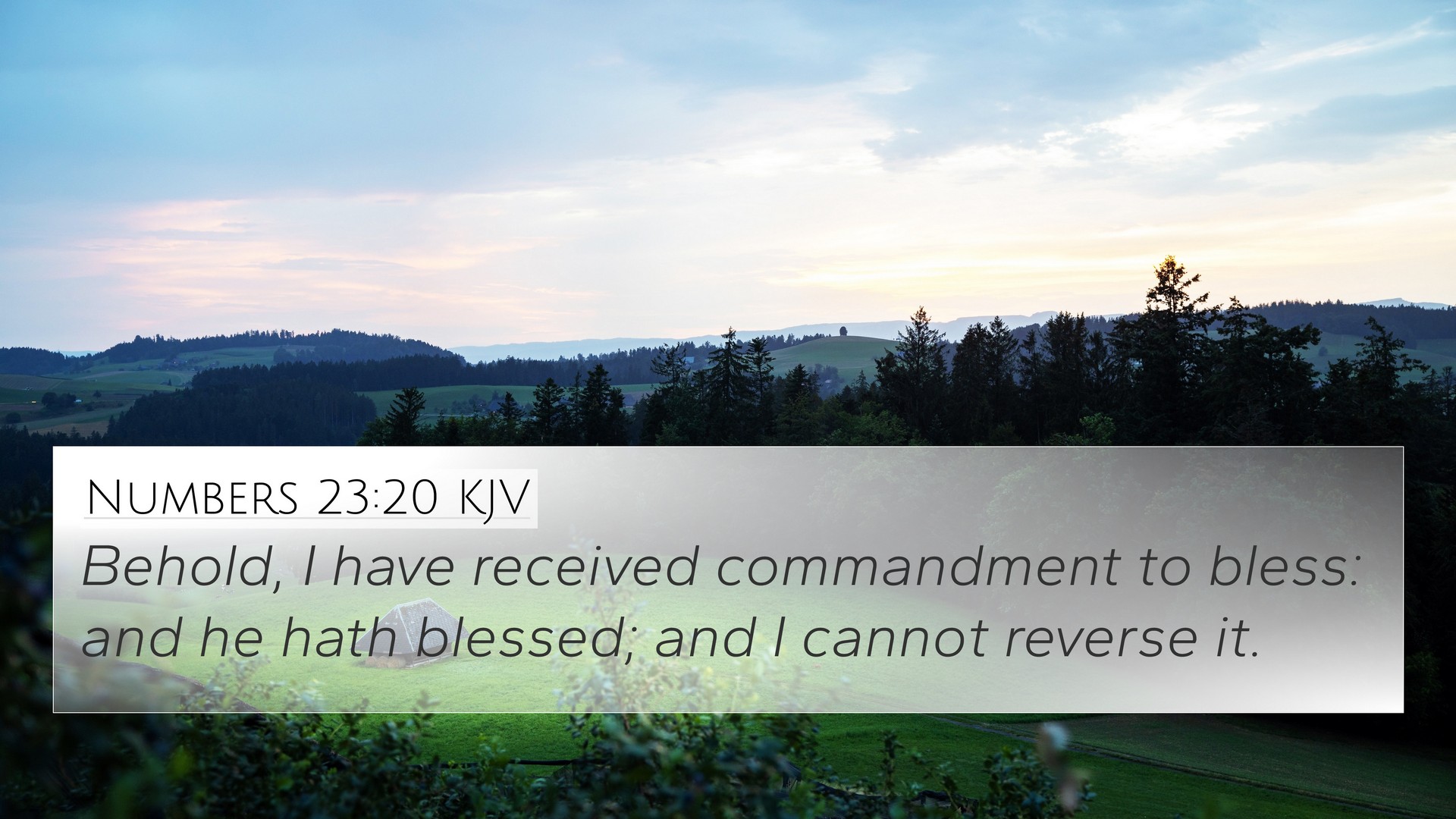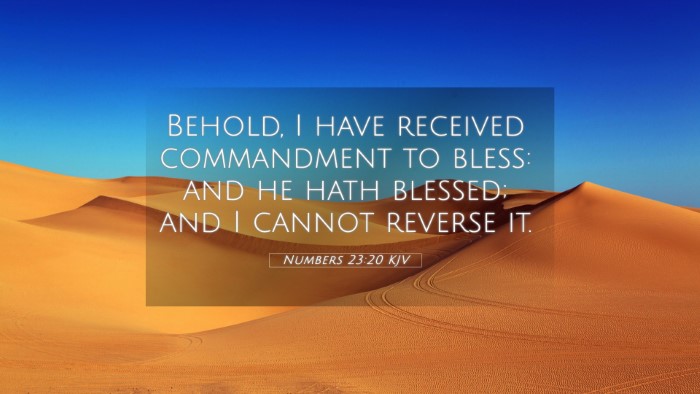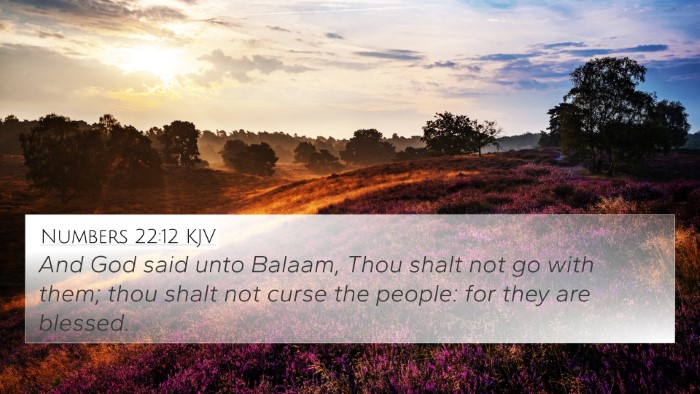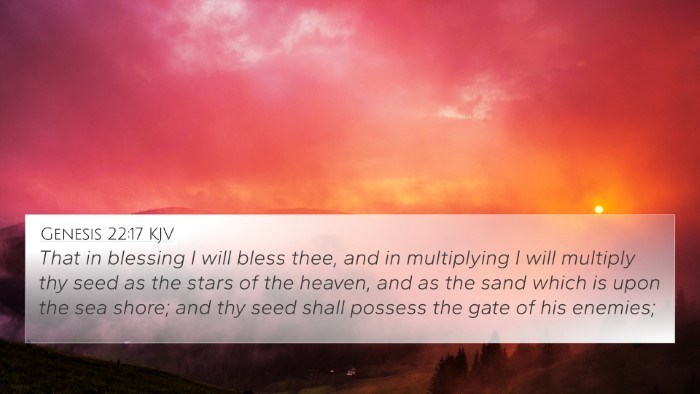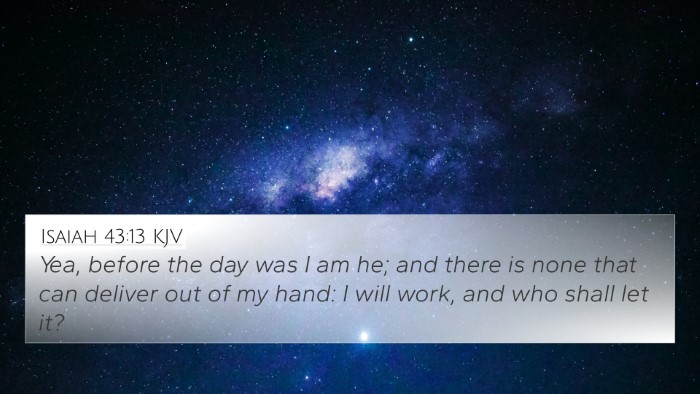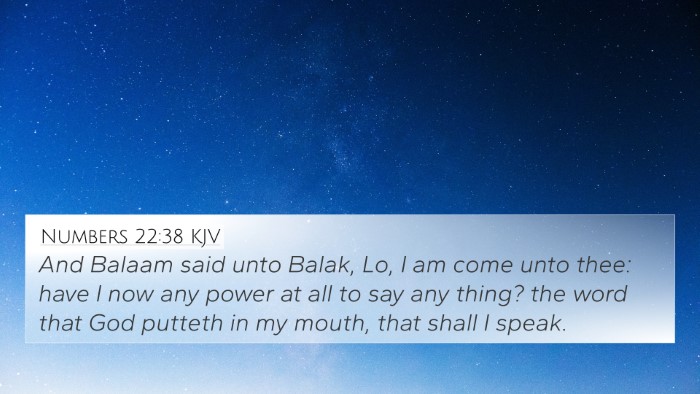Understanding Numbers 23:20
Verse: "Behold, I have received commandment to bless: and he hath blessed; and I cannot reverse it." (Numbers 23:20)
This verse is a profound declaration made by Balaam, a prophet hired to curse the Israelites. However, through divine intervention, Balaam found himself compelled to bless them instead. The meaning of this verse encompasses themes such as divine sovereignty, the power of God's blessing, and the futility of opposing God's will.
Commentary Insights
Matthew Henry’s Commentary
Matthew Henry emphasizes that Balaam's role as a prophet is crucial. He notes that despite the desires of Balak, the king of Moab, to see Israel cursed, God's command was unyielding. Henry highlights that an individual cannot undo what God has established. This serves as a reminder of God's supreme authority over all creation. Blessings, according to his understanding, are irrevocable and are bound to manifest as God wills.
Albert Barnes’ Notes
Albert Barnes provides insight into the context of the verse, explaining the significance of divine blessings. He discusses how Balaam, although initially scheming for personal gain, ultimately recognizes God's supreme power. He insists that blessings are the result of God's will and cannot be changed by human intentions. This acknowledgment reflects the underlying truth about the nature of God’s promises: when He blesses, it stands firm regardless of external influences.
Adam Clarke’s Commentary
Adam Clarke elaborates on the sentiments expressed by Balaam, showing the contrast between human intent and divine purpose. Clarke interprets the verse as a testament to the omnipotence of God. Balaam, realizing that he cannot curse what God has already blessed, affirms the assurance that God's plans cannot be thwarted. Clarke also draws parallels with other Biblical texts where similar themes of God’s unwavering blessing and protection are present.
Bible Cross References
- Blessings and Curses: Deuteronomy 28:2 - "And all these blessings shall come upon you and overtake you, if you obey the voice of the Lord your God."
- The Sovereignty of God: Numbers 11:23 - "And the Lord said unto Moses, Is the Lord's hand waxed short? thou shalt see now whether my word shall come to pass unto thee or not."
- God's Promises: Isaiah 54:17 - "No weapon that is formed against thee shall prosper; and every tongue that shall rise against thee in judgment thou shalt condemn."
- Divine Intervention: Proverbs 21:30 - "There is no wisdom nor understanding nor counsel against the Lord."
- God’s Protection: Psalm 125:3 - "For the rod of the wicked shall not rest upon the lot of the righteous; lest the righteous put forth their hands unto iniquity."
- Authority of Blessings: Romans 8:31 - "What shall we then say to these things? If God be for us, who can be against us?"
- Balaam's Prophecy: Numbers 24:9 - "He crouched, he lay down as a lion, and as a great lion: who shall stir him up? Blessed is he that blesseth thee, and cursed is he that curseth thee."
Thematic Connections
The themes present in Numbers 23:20 connect with other Biblical teachings that underscore God's unchangeable nature and His promises. It is essential to recognize the following:
- God’s authority transcends human intentions.
- Blessings from God are beyond the reach of curses.
- The importance of aligning with God's will for one's life and the lives of others.
Cross-Referencing Biblical Texts
This verse can be analyzed within the broader context of both the Old and New Testaments, revealing a network of connections between varying Scripture. Cross-referencing offers greater understanding of God’s consistent nature throughout the Bible. It demonstrates how:
- Old Testament blessings resonate in the New Testament affirmations of God's promises.
- Characters such as Balaam serve as examples of both human folly and divine purpose.
- God’s providence is confirmed through various accounts where His blessing prevails over opposition.
Conclusion
Numbers 23:20 serves as a powerful reminder of God’s absolute control over blessings and curses. Through the insights of various biblical scholars and the connections made with other passages, it is clear that once God has bestowed a blessing, it is immutable. By engaging with this verse and related scriptures, believers can grow in understanding of God’s unwavering character and the importance of remaining in alignment with His plans.
